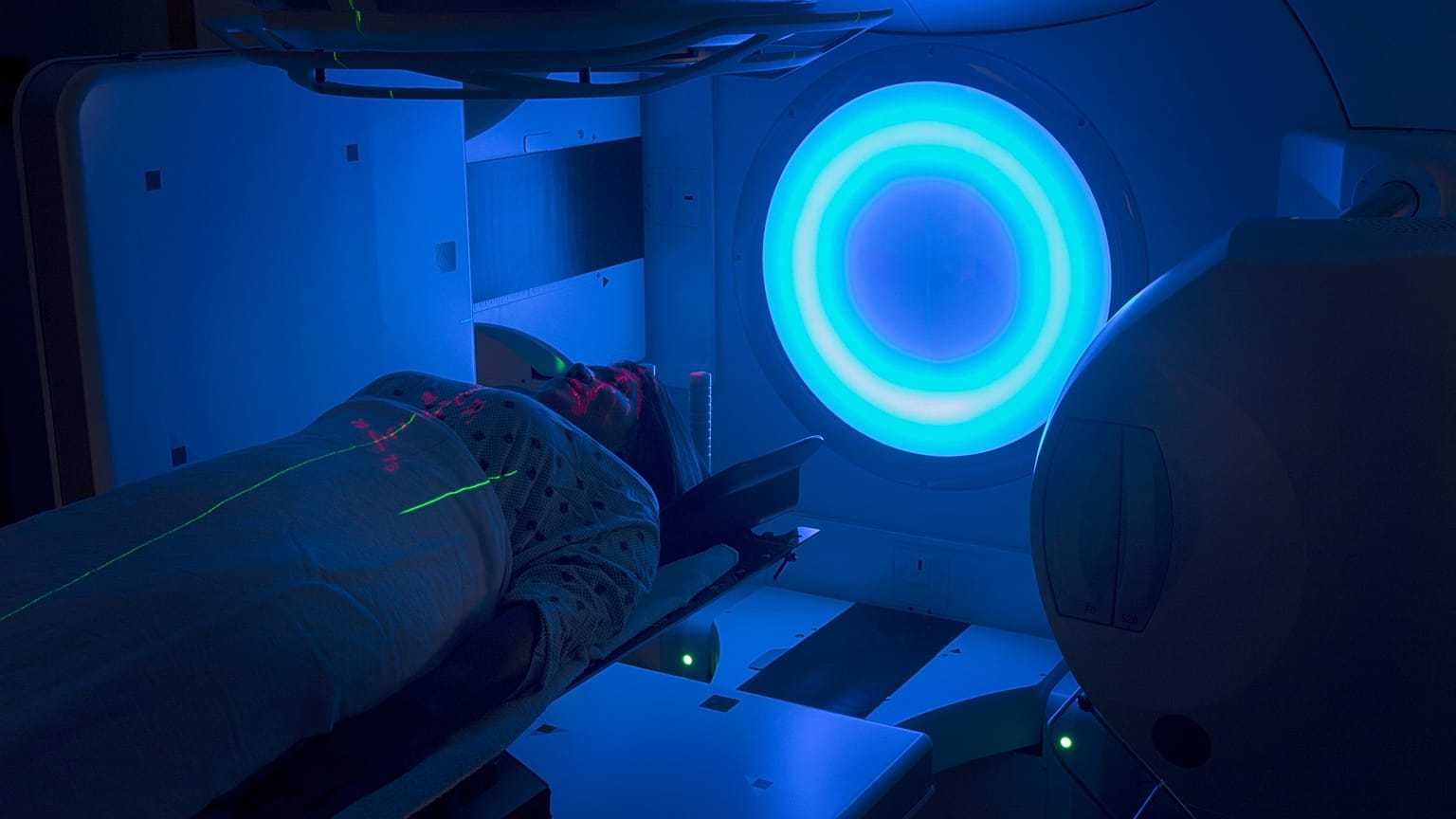A new international study found that radiation therapy did not affect 10-year survival rates for women with early-stage breast cancer who were considered “intermediate risk”.
While radiation has been a standard treatment for breast cancer patients since the early 20th century, a new study shows that it does not significantly improve survival for women with early-stage cancer at medium level of risk.
A late-stage international trial looked at survival rates over a decade for more than 1,600 breast cancer patients who had undergone mastectomy, lymph-node surgery, and systemic therapy including chemotherapy.
Researchers found that participants with “intermediate risk” for recurrence – defined as having stage II cancer with one to three affected lymph nodes, or aggressive tumours with no lymph node involvement – had nearly identical survival rates whether or not they underwent radiation of the chest wall.
After following them for a median of 9.6 years, researchers found that survival rates were 81.4 per cent for patients who underwent radiation, and 81.9 per cent for those who did not.
Only 29 patients total reported a recurrence – nine (1.1 per cent) in the radiation group compared with 20 (2.5 per cent) in the group that did not undergo radiation.
“The findings potentially allow patients to avoid unnecessary treatments, leading to more effective and efficient use of health and care resources,” John Simpson, who leads a UK government group to evaluate clinical trials, said in a statement.
The results of the trial were published Wednesday in the New England Journal of Medicine, a top medical journal. It included patients from the United Kingdom, seven countries in continental Europe, Israel, and Türkiye.
Shifting treatment recommendations
The findings challenge the idea that radiation should remain a key part of treatment after mastectomy, the authors said. Instead, it reinforces the shift away from radiotherapy for lower-risk patients.
The authors noted that breast cancer mortality has significantly dropped since the trial began, and that medical advances in systemic treatment of cancer have contributed to a higher survival rate.
Projections for this year show that breast cancer mortality in Europe will drop in every age group except for women over 80, for whom death rates will only fall in the United Kingdom and Spain.
Radiation has already fallen out of favour as a go-to treatment for low-risk cancer patients, but these new findings help clarify recommendations for women at intermediate risk levels, too.
Radiotherapy comes with significant side effects, some of which can develop months or even years after treatment ends.
Short-term side effects of radiation include hair loss, soreness, swelling, and skin irritations that can feel like sunburn. Lung inflammation can also occur in rare cases, as well as nerve damage to the shoulders and arms that can lead to numbness, tingling, pain, and weakness.
Dr Nicola Russell, one of the study’s authors and a radiation oncologist at the Netherlands Cancer Institute, said in a statement that avoiding those side effects could make it easier for breast cancer patients to heal.
“Avoiding unnecessary irradiation will reduce both treatment burden and, for example, the detrimental effects on breast reconstruction for these mastectomy patients,” Russell said.


















